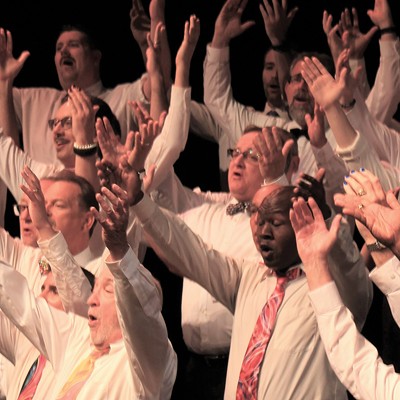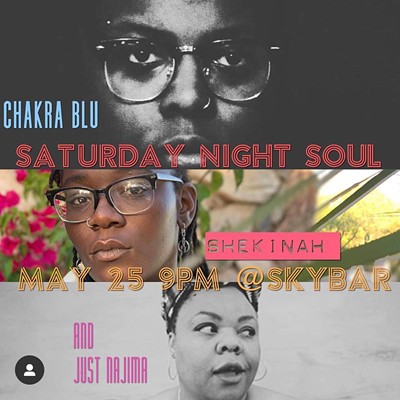Tight, focused and spare, the music Gillian Welch and David Rawlings make is an intoxicating blend of two guitars and two voices.
But there's nowhere to hide, and no easy tweaks to make when the songs aren't coming out as strong as they could be. So, after a frustratingly bleak stretch of songwriting, Welch and Rawlings shelved her new record to work on the David Rawlings Machine, producing a rowdier album and touring with a full band.
Just like that, the dam was broken.
"Making David's record was super-helpful, because we wanted to be working. Something was really good about the writing, but not necessarily writing for our duet, which had momentarily sort of become constricting," Welch says in a phone interview. "Our duet world is so highly focused; if it was a poem, it would be a haiku. It's very, very pared to the bone, and I think that kind of exhausted us. Doing the Machine record was sort of this explosion of sound for us.
"It made it so we both had become ravenous to work in the duet again, and we returned with this incredible head of steam and excited to make this sound that we now had been working 20 years to get," she says.
The much-lauded result, 2011's The Harrow and the Harvest, ended an eight-year wait for Welch's fans. It's a terrific record, returning to the early country-bluegrass sound that's been the pair's calling card since the beginning, when they were playing songwriter nights in Nashville and putting together the 1996 debut, Revival.
Taking their cue from classic country duets like the Monroe Brothers and Stanley Brothers, Welch and Rawlings don't sing in harmony so much as they sing as one, fusing their voices seamlessly. The guitars dance around each other, with each of Rawlings' fluidly picked leads a journey unto itself.
Welch says it was their most-difficult album to make, but the process itself delivered the realization that they're lifers. Never quitting in those eight years—and ending up with a better record than they would have made without the extra effort—brought an inspiring confidence.
"I'd been so miserable leading up to making this record—the kind of misery where anyone who could do anything else would have done it," she says. "I realized that I couldn't stop making music, even when it made me miserable. This is all there is. That gives you a great power. It's very freeing."
From the striking cover drawing that connects Welch and Rawlings to the elemental power of nature—placing them in a circle of wheat, flowers and birds—to the songs of struggle and sorrow, the album is rooted in American musical traditions.
"I'm a firm believer that people don't really change, not fundamentally. That's why you can still read Shakespeare, and it's great. That's why folk songs that are 200 years old are still great," she says. "The kind of peak emotional experiences that people have—the death of a loved one, love, heartbreak, loss, hardship—these things don't really change.
"We try to talk about those human conditions in the way that Dave and I experience them today, in 2012, and just try to give our perspective on it. That's all you can do."
Grounding themselves in traditional music came naturally for Welch and Rawlings, who began playing together after meeting as students at Berklee College of Music. She was a California-raised former goth bass player with a photography degree; he picked up the guitar as a teen in Rhode Island, finding his unique sound with an unusual 1935 Epiphone Olympic archtop guitar. As far as the duet, Welch says it was natural from the start.
"We found pretty early on that we are very in tune with each other as far as the feel. There's subtle stuff in the tempo and feel and the way the tracks move that very few other people understand as intuitively as we did," she says. "We noticed early on that I'm not a very showy singer. I'm pretty conversational, and so we noticed when we first started playing together that things didn't really get better (with) the larger band we had. We didn't want my voice and my guitar and Dave's guitar getting covered up."
A once-popular style that began dying with the advent of rock 'n' roll, unadorned vocal duets like the Stanleys and Blue Sky Boys drew in Welch.
"It's a wonderful form for narrative," she says. "We really are so well-suited to being a duet, and it's the music that we love. It really connects us with the tradition that we came up in."
Early on in Nashville, Welch found another source of education and inspiration in Townes Van Zandt, whom she saw play a lot. Though his story ends in tragedy, Townes taught Welch about how to approach writing and playing music as a career.
"Even though he was unique, and by then a really lovely mess, I recognized in him a staunch independence. The man had let everything fall away except what he wanted to do, to his own detriment, but what an independent soul," she says.
Borrowing Van Zandt's spirit of independence as an artist has allowed Welch to stay true to her vision, resisting industry efforts to force her to play solo or with a full band. She runs her own record label and picks performance venues that best showcase the music, like the Fox Tucson Theatre, instead of selling the most tickets possible.
"We do business in a way that we're comfortable with. Being an independent artist affords me the luxury, I guess, although you have to be brave enough to take it," she says. "I feel like I'm able to bring what I do to the world with more finesse and closer to my heart in a theater setting. That's where Dave and I have our peak artistic experience, because in a way, we really are chamber music, and we need the chamber, and so it's going to be very difficult for us to beat playing in something from a 1,000-seat to a 4,000-seat theater. We've spent the last couple of years really developing our sound for that environment. That's really where the music seems to breathe and expand and gain power."









